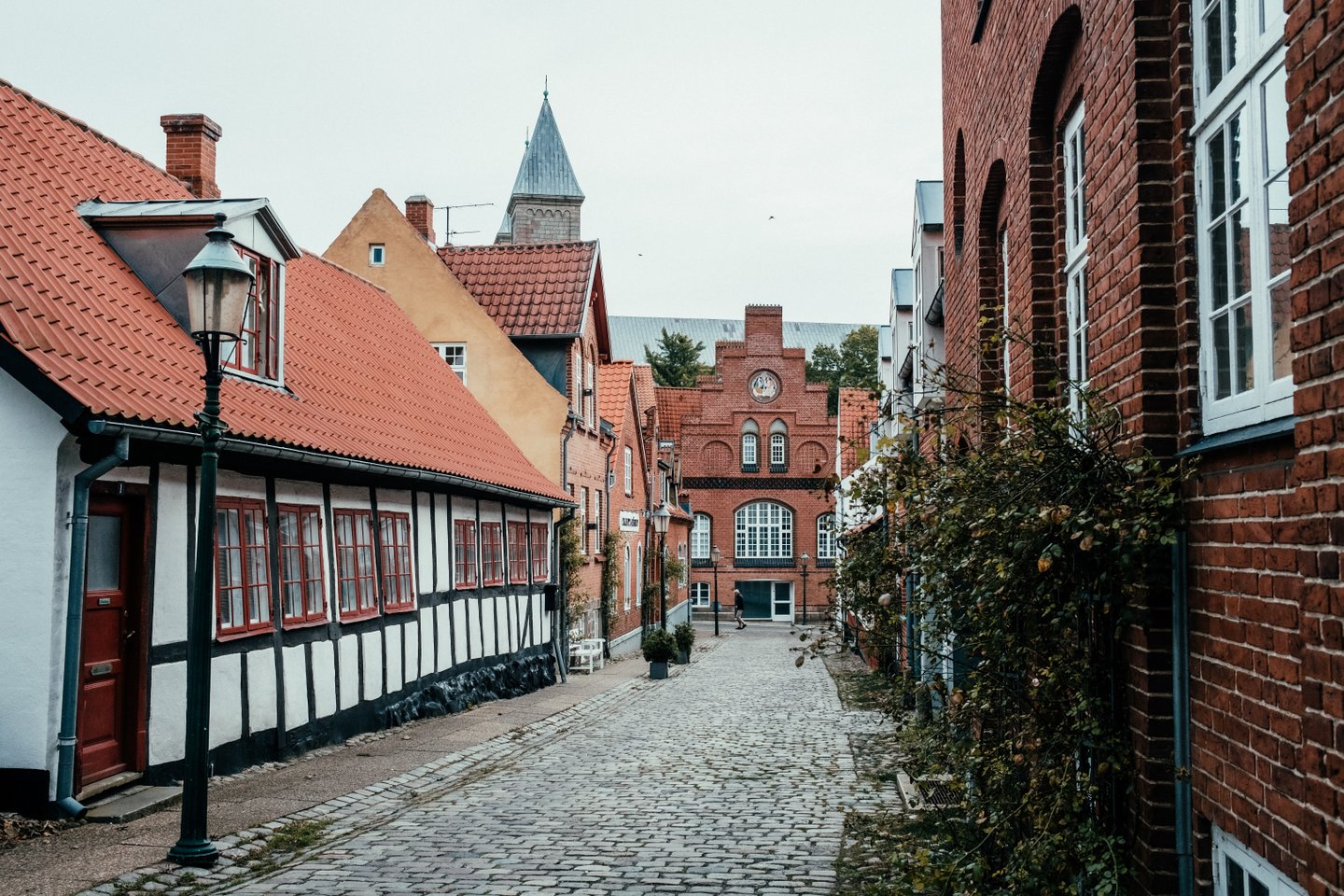
![]() Foto: Frame & Work
Foto: Frame & Work
THEME
Theme: Legacy and Localhood
The EuroVelo & Cycling Tourism Conference 2024 puts people at the centre. Visitors’ experience of a destination is more meaningful if there is contact with locals, and by interacting with visitors on a bicycle, locals can be even more inspired to make cycling part of their lives, as a daily mode of transport and leisure.
Cycling is a way of life in Denmark. The 2022 Tour de France Grand Départ left an enduring legacy befitting such a large event on the Danish economy, society and cycling practice. The host city of Viborg was – and still is – a key meeting place on an ancient pilgrim route, Hærvejen (EuroVelo 3 – Pilgrims Route in Denmark), an up-and-coming tourism product.
By exploring the topic of Legacy, the EuroVelo & Cycling Tourism Conference 2024 reflects on the impact that cycling events and the valorisation of local heritage for tourism purposes can have on the economy, the local community, and the use of the bicycle overall.
Localhood, a concept first introduced by Wonderful Copenhagen, means involving the locals in creating a more valuable experience for the visitor. For example, when the city of Aarhus was the European Capital of Culture in 2017, it successfully involved hundreds of volunteers. Raising awareness of EuroVelo and cycle routes among the local population is the first step towards ownership and a more sustainable urban and rural development. As a UNESCO Creative City, Viborg is keen on bringing cycling into the mainstream in original ways.
The EuroVelo & Cycling Tourism Conference 2024 wishes to apply the concept of Localhood to the cycling world, including long-distance cycle routes such as EuroVelo, and understand how the relationship between the local community and the development of cycling tourism is essential for multiplying positive impacts.
Subtheme 1: Cycling towards local development
Cycle routes and cycling tourism bring many benefits to society and the local economy, not least by creating jobs. Cycle routes are for everybody, residents and tourists, and developing quality infrastructure can encourage more cycling practice in urban and rural areas. Funding these projects, however, can be challenging: crowdfunding or public-private initiatives, as in the case of Hærvejen, can be a solution. In the long run, demonstrating return on investment is necessary, hence the need for data.
Priority topics
1. Quality cycling routes to support the sustainable development of urban and rural areas
2. Cycling-friendly services: improving business models by meeting the needs of both tourists and residents, especially in rural areas
3. Business models and return on investment of cycle routes and cycling tourism: demonstrating the impact with data, to secure funding
Subtheme 2: Engaging the locals
Making the local inhabitants aware of cycling initiatives such as EuroVelo is crucial to stimulate ownership. Involving the locals is key to maintaining a good level of infrastructure and offering a better experience for the visitor. To make cycling tourism more sustainable in the long term, locals should be supportive, and businesses should consciously cater for both residents and tourists. Integrating localhood into marketing initiatives can be a creative and successful way to promote a destination or an experience.
Priority topics
1. Community engagement with cycling, via route ownership, cycling events or community-led initiatives
2. Turning the locals into cycling (and EuroVelo) ambassadors as a way to boost cycle routes and cycling tourism
3. Innovative product and marketing campaigns, including digital media, design and animation to promote the uniqueness of a destination
Subtheme 3: Widening the horizon of cycling tourism
Large cycling events such as the Tour de France can create a positive and long-lasting legacy for the towns and regions that host them. These benefits can extend to putting more citizens on bicycles in their daily lives, including their holidays. Cycling is diverse: only if professionals get a broader and deeper understanding of the scope of usage can they convince more people to jump on a bike.
Priority topics
1. The impact of (large) events on cycling practice, the local economy and cycle route development
2. Daily cycling, cycling tourism and sport cycling: how can they influence each other?
3. Understanding the diversity of cycling tourism, also thanks to data and flagship initiatives
